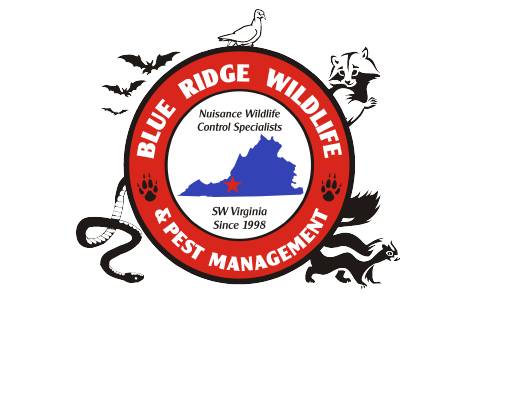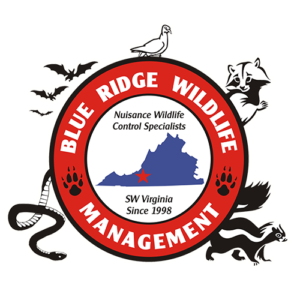Stop Raccoons from Invading Your Property
Tips and Tricks
Raccoons are cute and fuzzy creatures that can be fun to watch from a distance. However, when they start invading your property, they can quickly become a nuisance. Raccoons are known for their scavenging habits, which can lead to a lot of mess and damage on your property. From knocking over trash cans to tearing apart gardens, raccoons can cause a lot of problems. In this article, we will explore some tips and tricks to prevent raccoons from invading your property.
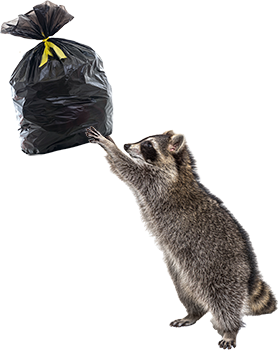
Why Raccoons Invade Your Property
Raccoons are opportunistic creatures that are attracted to food, shelter, and water sources. Your property may provide all of these things, making it an attractive target for raccoons. Some common reasons raccoons invade properties include
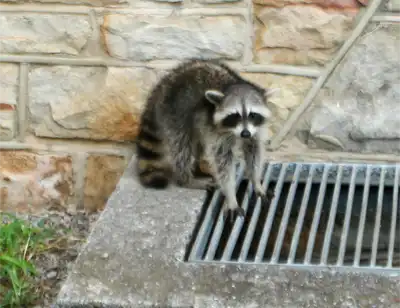
Signs of Raccoon Infestation
It’s important to be able to identify the signs of a raccoon infestation so you can take action before it becomes a bigger problem. Some signs of raccoon infestation include
If you notice any of these signs, it’s essential to take action as soon as possible to prevent further damage and health risks.
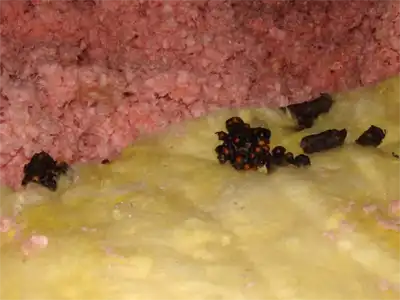
Here Are Some Tips to Prevent Raccoons From Invading Your Property
Cleaning up your attic after a bat infestation can be a challenging and time-consuming process. Here are the steps you need to take:
- 1Secure garbage cans and compost bins with tight-fitting lids or bungee cords.
- 2Keep pet food inside or feed pets indoors.
- 3Remove bird feeders, or hang them high off the ground.
- 4Seal off entry points to attics, crawl spaces, and sheds.
- 5Install motion-activated lights or sprinklers.
- 6Use strong-smelling deterrents, such as ammonia, vinegar, or cayenne pepper.
- 7Install a fence around your property, making sure it is buried at least six inches below ground.
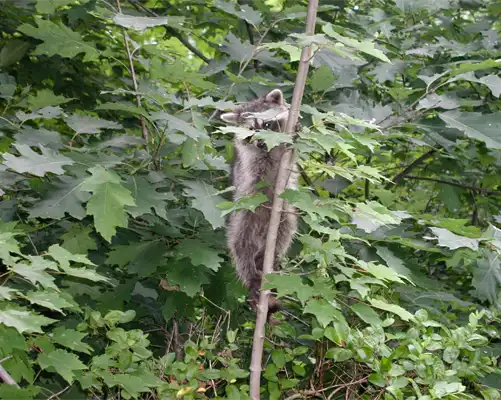
DIY Raccoon Deterrents
If you’re looking for a more natural way to deter raccoons from your property, try these DIY deterrents
- 1Planting certain plants, such as marigolds, garlic, and hot peppers, can repel raccoons.
- 2Sprinkling used coffee grounds around the perimeter of your property can also be effective.
- 3Using predator urine, such as coyote or fox urine, can scare raccoons away.
Professional Raccoon Control Services
If you have a persistent raccoon problem, it may be best to call in the professionals. Here are some services that can help
- 1Wildlife removal companies can trap and remove raccoons from your property.
- 2Pest control companies can provide ongoing preventative services to keep raccoons away.
Conclusion
Raccoons can be a nuisance when they invade your property, but there are many ways to prevent them from doing so. By securing your garbage cans, removing food sources, and sealing off entry points to your home, you can make your property less attractive to raccoons. If you’re dealing with a persistent raccoon problem, consider hiring a professional wildlife removal or pest control service. With these tips and tricks, you can keep raccoons from invading your property and causing damage.
Frequently Asked Questions
While dogs and cats may deter raccoons, they are not always effective. Raccoons can be aggressive when cornered or threatened, so it’s important to supervise your pets when they are outside.
If you find a baby raccoon, it’s best to leave it alone. The mother is likely nearby and will return for her baby.
However
If the baby appears to be injured or in danger, do not try to rehabilitate it yourself! It is illegal in Virginia to keep wildlife as pets or to attempt to rehabilitate them on your own. This is why you must contact a wildlife rehabilitation center such as
- Southwest Virginia Wildlife Center of Roanoke – (540) 798-9836 – Located in Roanoke
- Rockfish Wildlife Sanctuary – (434) 263-4954 – Located in Shipman
- Blue Ridge Wildlife Center – (540) 837-9000 – Located in Boyce
- Wildlife Center of Virginia – (540) 942-9453 – Located in Waynesboro
No, using poison to get rid of raccoons is not a legal or humane method of control. In Virginia, it is illegal to use poison to kill wildlife without a permit from the Virginia Department of Game and Inland Fisheries (VDGIF). Even with a permit, the use of poison to control raccoons is generally not recommended as it can pose risks to other wildlife, pets, and humans.
Additionally, using poison to control raccoons is considered inhumane because it causes a slow and painful death, and can lead to secondary poisoning of other animals that consume the poisoned raccoon. There are a variety of more humane and effective methods of raccoon removal and control, including live trapping and relocation, exclusion techniques to prevent entry into buildings, and habitat modification to make your property less attractive to raccoons.
Raccoons are generally not considered to be dangerous to humans, but they can pose a risk if they feel threatened or if they carry certain diseases. Raccoons are known carriers of rabies, a serious and potentially fatal disease that can be transmitted to humans through bites or scratches. It is important to avoid contact with raccoons and to seek medical attention if you are bitten or scratched by one.
